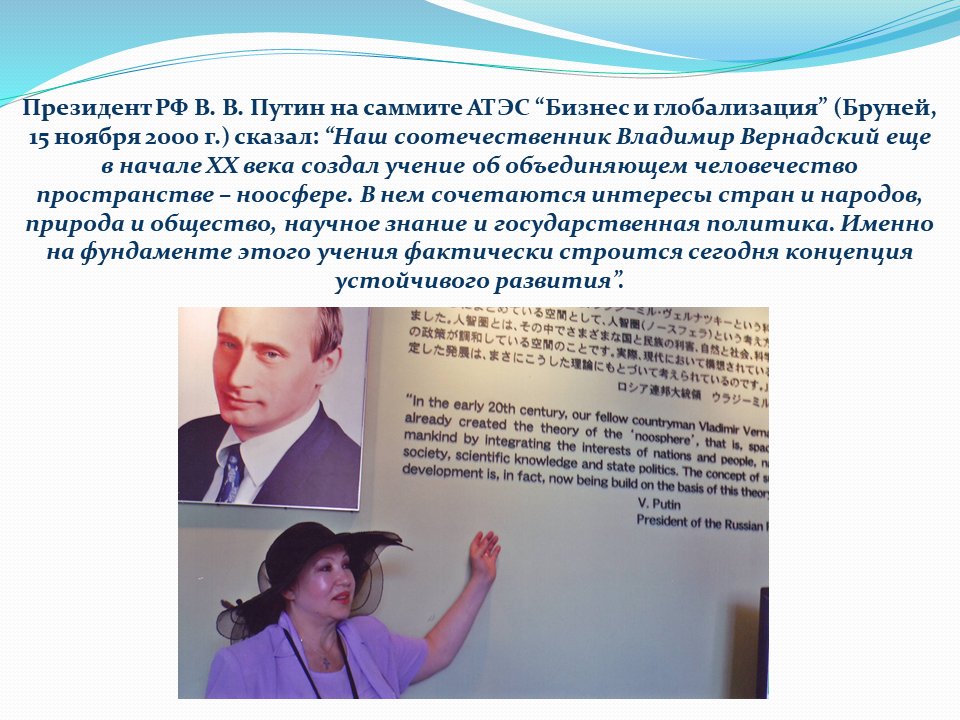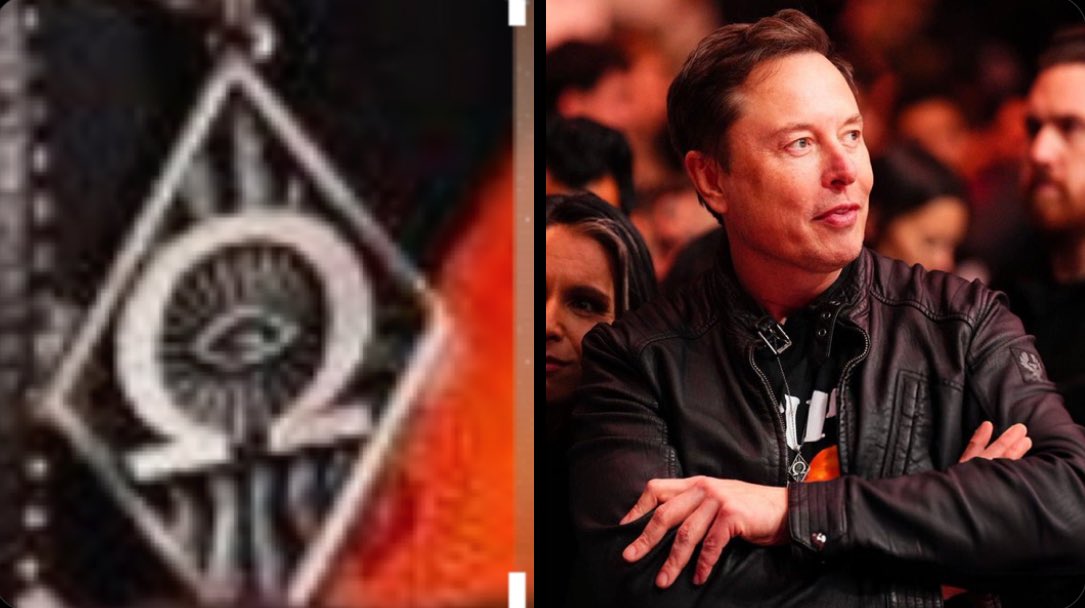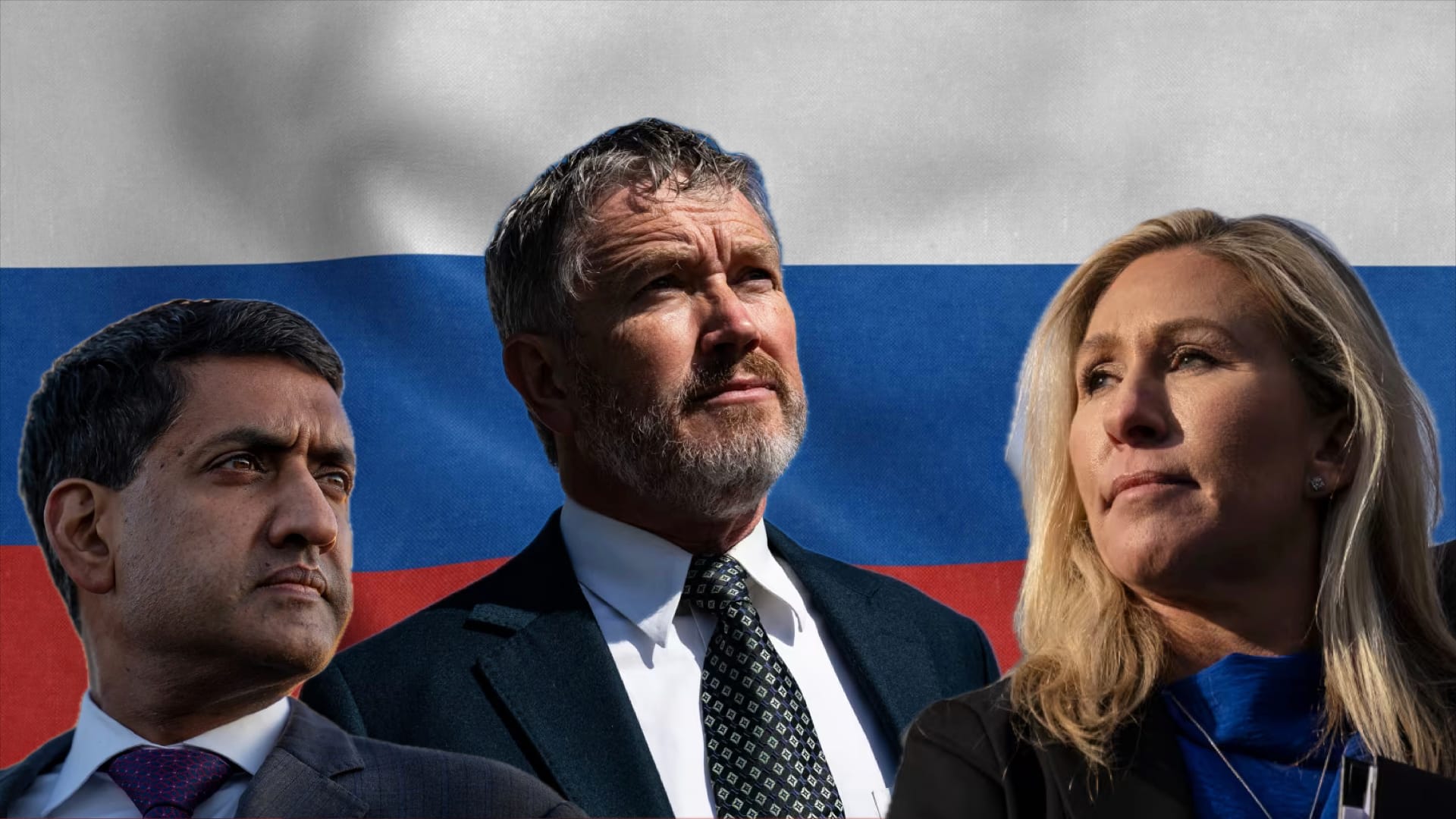What's “Love” Got to Do with Putin's Policy Agenda?
The increasingly common use of the word 'love' in geopolitical discourse has some wondering "why?" It may be rooted in the century-old idea of the Noosphere.

For those paying close attention, one of the more disturbing tics on display with our current batch of dictators is the tendency to use the word love when describing their motivations. While this might seem like a simple deflection from their true aims, rooted in ego and power, there is a deeper wellspring from which this may be emanating.
Vladimir Putin is perhaps the most notorious. Back in 2014, he made headlines when he declared in a speech, "The meaning of our whole life and existence is love — love to the family, to the children, to the motherland." This might sound odd, coming from a cold-blooded strongman famous for murdering his enemies and staging terrorist attacks. And of course, for Putin, love of the LGBTQ variety is strictly verboten.
But Putin's speech, delivered at the Russian Geographical Society, was received differently by audiences more familiar with his thinking. Putin wasn't talking about romantic candlelight dinners and long walks on the beach, but rather was referencing the concept of the Noosphere, which has emerged as a basis for his policy agenda.
According to the Noosphere theory, humanity will inexorably progress towards a state of global consciousness. Pierre Teilhard de Chardin, the famous French-American Catholic theologian who co-developed the theory, believed that love is the pathway towards advancing that evolution. Commentator Phil Butler, writing for Russian propaganda outlet New Eastern Outlook in 2016, said, "It was Teilhard who first argued that the noosphere would eventually evolve toward the Christian notion of love as a principal driver of this new evolution... Vladimir Putin has been quoted as saying that love is 'the way' forward many times."

Putin has been enamored with the Noosphere concept since at least 2000, where he touted it as the basis for "sustainable development." In 2016, he made waves when he hired Anton Vaino as his chief of staff, who claimed as his principal achievement the invention of a "nooscope," allegedly a device for tracking progress towards achievement of the noosphere.
The Noosphere idea has deep roots in Russian culture. Vladimir Vernadsky, principally known as an earth scientist and chemist, was born in Ukraine and became famous there. He was part of a philosophical movement called Russian Cosmism that got its start in the late 19th century. In fact, Cosmism is so foundational to Russian nationalism that scholar Marlène Laruelle made it the subject of the first chapter in her 2018 book, Russian Nationalism: Imaginaries, Doctrines, and Political Battlefields.
Love Is In the Air
Putin's noospheric love is everywhere — and to many, it is a menace. Putin so wished to heap his love on Ukraine that he penned a historically revisionist essay in July 2021 called On the Historical Unity of Russians and Ukrainians, before launching a bloody invasion of the country in February 2022.
That same month, he and Xi Jinping formalized their own partnership when they issued their "Joint Statement of the Russian Federation and the People’s Republic of China on the International Relations Entering a New Era and the Global Sustainable Development." Key here is the mention of "global sustainable development."

While "sustainable development" as a general concept is anodyne enough, it is often a signifier of the noospheric agenda. Economist Jeffrey Sachs, who has become a prominent Putin apologist, heads the Center for Sustainable Development at Columbia University. In addition, Sachs has headed the UN Sustainable Development Solutions Network, and was appointed to an advisory position with Tsinghua University in China, which he omitted from his curriculum vitae.


Many have noticed Putinesque notions of love turning up in other places across our cultural discourse. Lex Fridman, a podcaster who has gained popularity in part by riding the coattails of his friend Joe Rogan, speaks with a dull affect about his "love" for humanity, and why love — speaking in a very broad sense — offers an escape from the difficulties of life. When Fridman (born in 1983 Soviet Russia as Alexei Fedotov) recently interviewed Ukrainian President Volodymyr Zelenskyy, many pointed out that Fridman's ideas about "love" were irreconcilable with the fact that Putin was pursuing a genocidal war.
Zelenskyy told Fridman when asked about Putin's love, "Who are the Chechens? A different people, another faith, other people, another language. A million eliminated. And eliminated how? How did he kill them? With love? I know, fuck by hugging. In Ukrainian, as we say, “Strangling by hugging. I love you so, so much. I love you so much that I want to kill you.” That’s his love."
We Will Have Such Love...
In 2024, the New York Times noted that Donald Trump was increasingly turning to the word love in his campaign communications. On August 30, a campaign email read "I truly mean it when I say that I will always love and appreciate you." While that report focused on Trump's use of language to create community and a sense of belonging, Trump's rhetoric is increasingly matching Putin's in tone and affect.
Perhaps most notable was when Trump advised rally-goers in July 2024, “I love you, Christians. I’m a Christian. I love you, you got to get out and vote. In four years, you don’t have to vote again. We’ll have it fixed so good, you’re not going to have to vote.” He then reiterated the statement in an interview with Laura Ingraham, saying, “Don’t worry about the future. You have to vote on Nov. 5. After that, you don’t have to worry about voting anymore. I don’t care, because we’re going to fix it. The country will be fixed and we won’t even need your vote anymore, because frankly we will have such love, if you don’t want to vote anymore, that’s OK.” And in October, he referred to the January 6 insurrection as a "day of love."
Musk's "Love of Humanity" and the Omega Point
When Elon Musk took over Twitter, he said he "did it to help humanity, which he loves," a statement which he has repeated many times since. But as with Putin, Musk's love appears to come with conditions, and threats that ensure compliance.

Perhaps more ominously, Musk has adopted the symbology of the Noosphere — specifically wearing an amulet referencing the Omega Point — Teilhard's term for the arrival of the Noosphere. Teilhard also theorized that this moment would mark the return of Christ in the form of Christogenesis, or the achievement of the Christ in humanity itself. Many theorists have also mapped this onto the concept of the technological singularity (the merger of humanity with technology), to which Musk is an adherent and which one can see expressed in his Starlink and Neuralink efforts. Such ideas are rampant in both Russian culture and in the Silicon Valley milieu in which Musk was incubated.
Syncretic Ideas in a Dangerous Time
It is impossible to know what, specifically, is motivating each of these men to use the word 'love' in such a darkly cynical way. While Putin is known to be a student of the noosphere (and is abusing its central message by applying his own self-serving interpretation), Trump and Musk may just be taking advantage of a shifting cultural landscape that gives dictators more latitude and more innovative language through which to express their genocidal agency.
Whatever is driving their newfound language of love, we would be wise to be suspicious of any rhetoric rooted in patriarchal autocracy. For if there is anything these men have in common, it is their desire to replace the messy business of democratic governance with their own will and judgment. Beware the love of dictators.
Suggested Additional Reading










